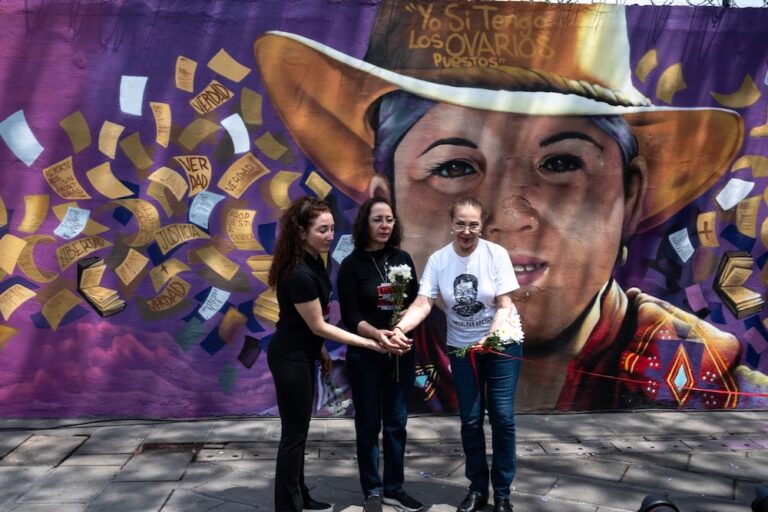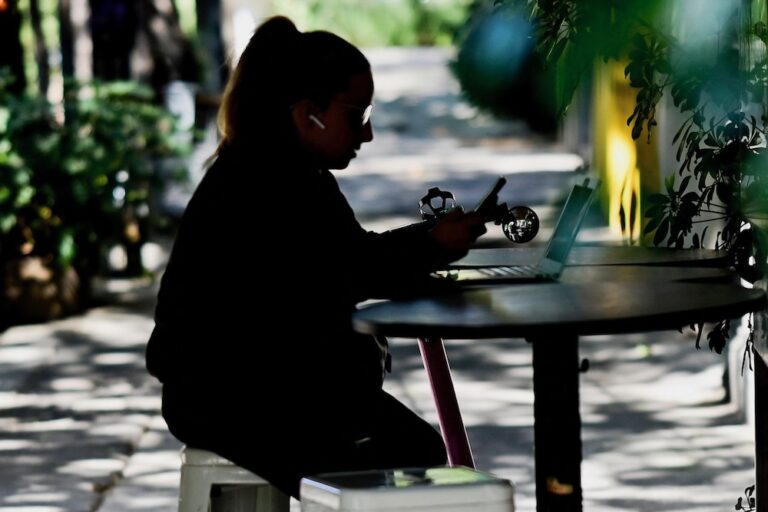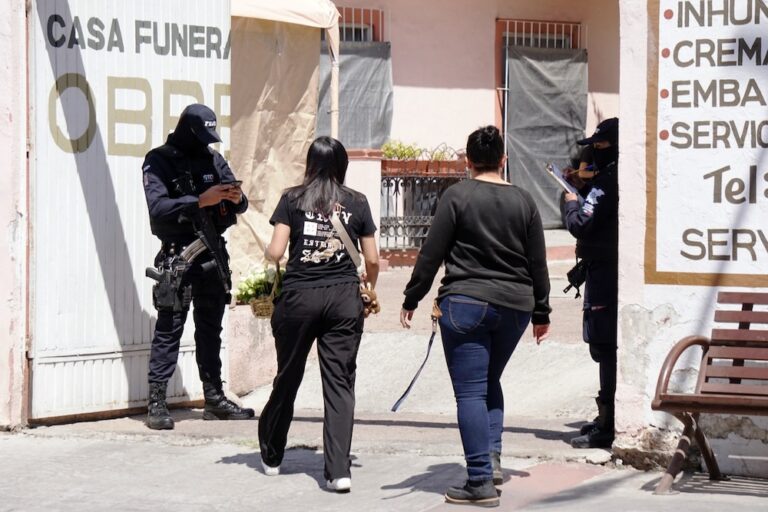The outlook for breaking the cycle of impunity and violence in Mexico has grown more dim under President Andrés Manuel López Obrador.
This statement was originally published on cpj.org on 28 October 2020.
Some recent convictions in the cases of journalists murdered in Mexico may give the impression that the state is making significant progress in the fight against impunity. While CPJ has welcomed the convictions as an important step, the outlook for breaking the cycle of impunity and violence in Mexico has grown more dim under President Andrés Manuel López Obrador. On August 21, a federal judge in Chihuahua convicted Juan Carlos Moreno for the murder of reporter Miroslava Breach Velducea on March 23, 2017, and sentenced him to 50 years in prison. The conviction followed a 14-year sentence issued in February to Heriberto Picos Barraza, who drove the getaway car used for the May 2017 murder of Javier Valdez Cárdenas, a 2011 recipient of CPJ’s International Press Freedom Award. Several other cases have seen convictions over the past few years.
But Mexico remains firmly on CPJ’s Global Impunity Index, which highlights countries where journalists are murdered and their killers go free. In the vast majority of murder cases, no suspect has been convicted, according to CPJ research. Only a single murder case in Mexico – from 1995 – has received full justice since CPJ began tracking killings in 1992. In both the Breach and Valdez cases, among the most emblematic in recent Mexican history, those receiving a sentence were convicted for being the triggermen. In both cases, the suspected masterminds remain at large.
Moreover, the conviction of Picos Barraza in the Valdez case was achieved in a so-called abbreviated trial. Under this agreement, he pleaded guilty, but was not obliged to provide further details about the murder that may have helped federal prosecutors’ case against a second suspect, Juan Francisco “N,” alias ‘El Quillo,’ whose trial is ongoing.
The lingering impunity places tremendous strain on the families of murdered journalists, said Nancy Gómez. Her brother, Mario Gómez, a reporter for newspaper El Heraldo in the southern Mexican state of Chiapas, was shot dead in broad daylight in the town of Yajalón on August 21, 2018. Although several suspects were arrested and are on trial, Gómez told CPJ that authorities have made little progress in finding those who ordered the murder.
“It’s extremely stressful,” Gómez said. “We feel that the trial is completely stuck. I fear that the suspects may be released, it’s already taken so long. Honestly, this is no way to live.”
López Obrador’s government is not helping to solve the problem. The office of the Special Prosecutor for Attention to Crimes Committed Against Freedom of Expression (FEADLE) – a dependency of the Mexico City-based federal attorney general’s office, which was created in 2010 to address the growing number of killings of journalists – has, under López Obrador, shied away from proactively prosecuting murder cases. The institution’s authority to federalize murder cases was expanded through a constitutional amendment in 2013, but its head, Ricardo Sánchez Pérez del Pozo, told CPJ in 2019 that his agency will only prosecute murder cases by request of the victims’ families or of state authorities. In practice, this rarely happens – not least because local and state officials are often implicated in crime and corruption, according to CPJ research.
In fact, no murder cases have been federalized since López Obrador assumed office in December 2018. CPJ’s phone calls to the president’s office seeking comment were not returned.
Meanwhile, the federal government’s most important institution designed to protect reporters, the Federal Mechanism for the Protection of Human Rights Defenders and Journalists, is dealing with issues of its own. It is already beset, as reported by CPJ, by a chronic lack of funding and proper training for its personnel; now Congress appears to be moving towards eliminating the federal trust fund through which the agency finances protective measures. By transferring control of those funds directly to the Secretariat of the Interior, the protective measures of more than 1300 people, including over 400 journalists, may become vulnerable to political whims and the trading of favors.
Uncertainty about the mechanism’s future and, indeed, the Mexican federal’s government commitment to protecting reporters has caused a nervous stir among those relying on the government for their security. “It gives me the feeling that I’m far from being safe,” said Demis Santana, the director of Cambio Press, a newsmagazine in the northern Mexican state of Tamaulipas, who gained federal protection after being threatened multiple times and kidnapped by alleged members of organized crime.
“I don’t feel that we’re getting the appropriate support we need,” Santana said. “I’m feeling anxious, there’s no one who looks at the strain the uncertainty places on those of us in need.”
Mexico’s judiciary has made some careful progress. In 2017, a new system of oral trials was first fully implemented across the country. As The Washington Post reported that year, the new system allows victims and their families to attend trials and have a voice in the proceedings. Moreover, cases are handled more swiftly and, at least in theory, demand higher quality evidence from police investigators.
But Mexico remains one of the deadliest countries in the world for reporters. In 2020 alone, another four reporters have been murdered in direct retaliation for their work, according to CPJ research. The motive of a fifth killing is unclear. Partial lockdown measures due to the COVID-19 pandemic have not slowed the killings, which continue at an almost even pace to previous years. For the victims and their families, justice continues to be an abstraction.
Jan-Albert Hootsen, CPJ’s Mexico correspondent for the Americas program, works as a correspondent for Dutch newspaper Trouw, and regularly contributes to publications including Newsweek and RTL Nieuws. He is based in Mexico City.



